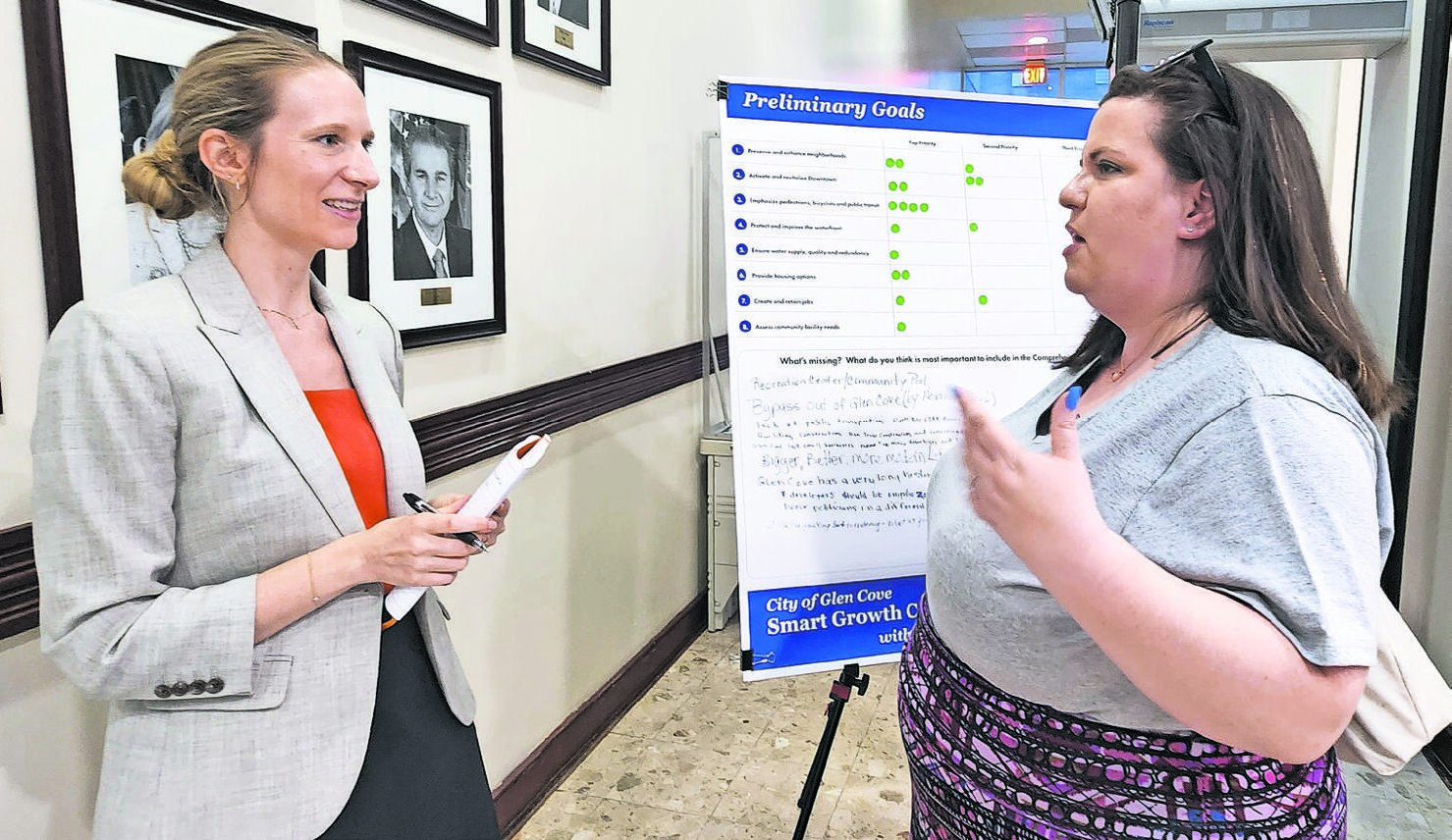City’s comprehensive plan is a guide for next 15 years
After a decade-long hiatus since its last update in 2009, the Glen Cove City Council voted unanimously to adopt its comprehensive plan, which is intended to guide the city’s development, infrastructure and services for the next 10 to 15 years. The plan was developed over 16 months by the council; Mayor Pamela Panzenbeck; BFJ Planning, a Manhattan-based consulting firm; public input; a Comprehensive Planning Committee of 52 community members; and a Core Working Group of 12 Glen Cove residents.
“We were very happy that it passed unanimously,” Panzenbeck said. “It really means that everybody feels that they’re comfortable with it, that they all had input. I believe everybody was very comfortable with the master plan, so that speaks for itself.”
Community members offered their input through an online survey and several public workshops. Despite extensive efforts to engage residents, the response was relatively modest, with only 600 people completing the survey. Nonetheless, the feedback provided valuable insights into the city’s strengths and weaknesses.
Respondents identified Glen Cove’s parks and beaches, overall quality of life, and first responders as its primary strengths. The downtown area, tax rate and the cost of living were highlighted as significant weaknesses. The feedback has been instrumental in shaping the plan’s recommendations.
The document notes the changes that have occurred in recent years, including large-scale redevelopment downtown and on the waterfront, as well as changes in the commercial real estate market resulting from the pandemic. It also addresses the city’s population growth from 2010 to 2020 — 5.2 percent, to just under 30,000.
“The comprehensive plan is designed to be a dynamic and flexible framework, guiding the city’s development over the next decade and beyond,” Fangmann said in a call to the Herald.“It includes recommendations for code changes, infrastructure improvements and other initiatives aimed at enhancing the quality of life for Glen Cove’s residents. While immediate implementation of all recommendations is not feasible, the plan provides a strategic roadmap for prioritizing and addressing the city’s most pressing needs.”
The plan’s journey to approval was rigorous and inclusive. After the grant funding was secured, the city worked closely with BFJ Planning and formed the committees.
“This was an extremely collaborative process,” Fangmann said. “It was not about any one person or any one agency — this truly was a comprehensive undertaking, and I think we feel good about that.”
Once a draft plan was developed, it underwent a thorough environmental review. The City Council held two public hearings to gather feedback, and public involvement was substantial, with City Hall filled for the hearings.
Glen Cove resident Gracie Donaldson Cipriano, who responded to the survey and attended the public workshops, said she was happy that the plan addressed some infrastructure challenges, but wished it had been simplified to be more reader-friendly.
“The plan document was very long, and filled with a lot of jargon and terminology that the average Glen Cover will not take the time to read and understand,” Donaldson Cipriano said. “I understand that a long document is necessary for the government, but for residents, we should have bullet points readily available for us. Long, jargon-filled documents turn people off to being involved in what has the potential to be positive change.”
Dr. Maxine Mayreis, president of the Chamber of Commerce, played an active role in both the Comprehensive Planning Committee and the Core Working Group. She said that a primary focus was on revitalizing the downtown area by filling vacant storefronts and creating a vibrant, 16-hour/seven-day economy.
“It was an exciting experience to be part of the Comprehensive Planning Committees,” Mayreis said. “All the effort led to a very good comprehensive plan, and next time Money Magazine rates best places in the U.S. to live, I hope to see Glen Cove move up from number 37 to number 1.”
The plan can be found at GlenCoveComprehensiveplan.com.






